Author’s note: This Oppenheimer review was written during the 2023 WGA and SAG-AFTRA strikes. Without the labor of the writers and actors on strike, the film being covered here wouldn’t exist. If you are interested in helping those workers on strike, please consider giving to the Entertainment Community Fund.
Oppenheimer is stunning. Christopher Nolan‘s latest film, based on the book American Prometheus: The Triumph and Tragedy of J. Robert Oppenheimer by Kai Bird and Martin J. Sherwin, doesn’t suffer from the problems of most biopics, which tend to encompass so much while saying too little. It’s a film full to the brim, and at the start it takes a few moments to synch into its rhythms, but once you do there will probably be few films this year that will compare to it.
All the “Barbenheimer” talk does a disservice to both films – both deserve their space and time they ask the audience to sit and contemplate them. If you’re currently booked for a double feature this weekend, I’d rethink that – Oppenheimer is a three-hour experience that can test an audience, but the work is worth it.

Nolan doesn’t direct this thing so much as conduct it, like a symphony. Oppenheimer, like many of Nolan’s previous films, has fractured non-linear narratives, many characters with their own motivations, a ton of information given to us at breakneck speed, and a confidence in the audience to keep up with all of it. This is not a film for amateurs, and it’s also not a movie that will come back for you if you lose the pace. But that, thematically, works.
Oppenheimer is about men who cannot see the future because they must make their marks on the present, and often the film is so breakneck paced that our attention is not allowed to think of the ramifications of what is happening – that is, until it happens, and we are forced to live in the fallout.
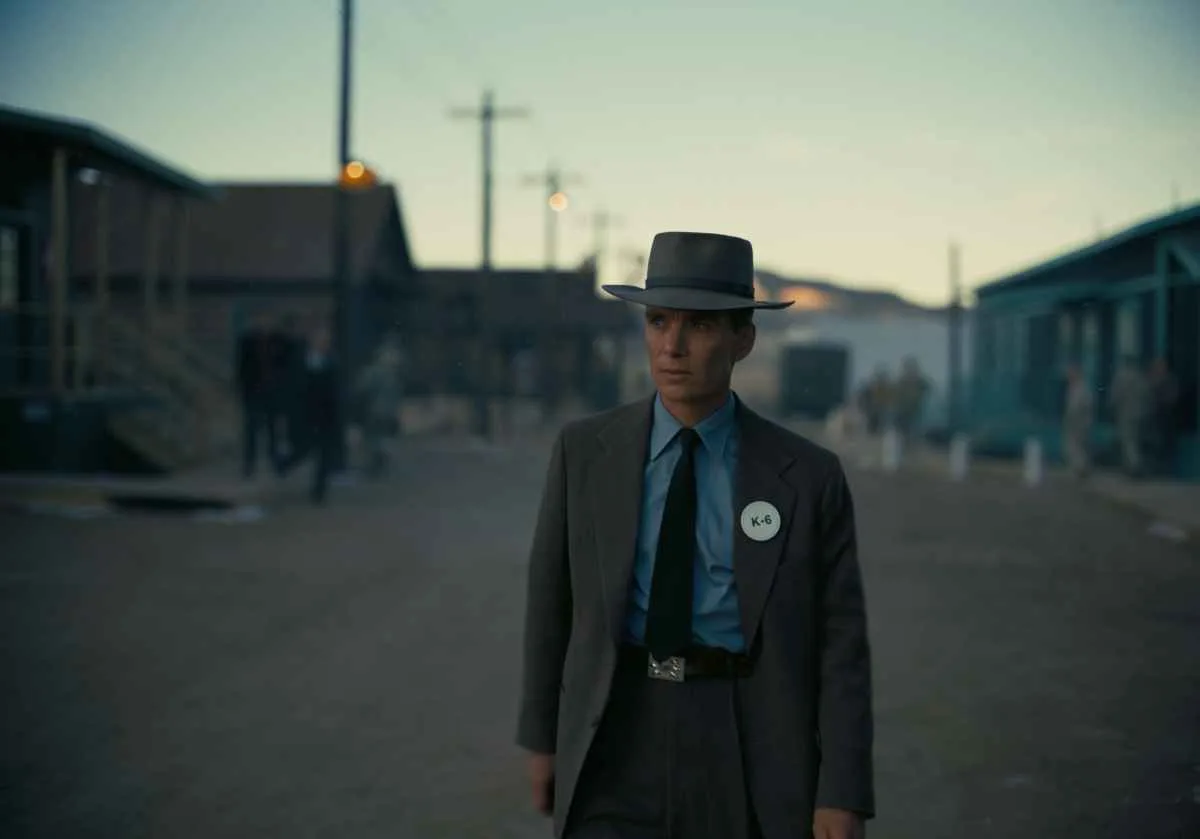
J. Robert Oppenheimer (an excellent Cillian Murphy) is plagued by visions of a world underneath the world – subatomic particles, waves of energy, and the building blocks of the fabric of creation. A quantum physics theorist, Oppenheimer is intrigued by the ideas of Niels Bohr (Kenneth Branagh), Werner Heisenberg (Matthias Schweighöfer), and especially Albert Einstein (Tom Conti).
But he is a better thinker than a practical scientist, and as the saying goes, those who cannot do, teach. Soon Oppenheimer’s ideas get the attention of the United States government, as well as other interested parties, including the American Communist party. Alarmed at the treatment of the Jews in Nazi Germany, Oppenheimer wants to serve, but on his terms.

Oppenheimer is a vain, egotistical man, a philanderer, and someone who eschews moral quandaries for mathematical ones. The film centers around his complicated relationships with two men and two women. The two men, Lewis Strauss (Robert Downey Jr.), and Leslie Groves (Matt Damon), each have their own agendas and their own uses for Oppenheimer, and the two women – his wife Kitty (Emily Blunt) and his mistress Jean Tatlock (Florence Pugh) – compete for Oppenheimer’s love and attention.
But for Oppenheimer, he can only focus on the problem – to beat the Nazis in the creation of a new kind of weapon, that once used, could very well destroy the world. It’s what happens after, once the genie escapes from the bottle and can never return, that haunts Oppenheimer to the end of his days.

Nolan isn’t interested in a hagiography here. He never lets Oppenheimer, or the forces that drove him to become the “Father of the Atomic Bomb,” off the hook. Oppenheimer only seems interested in politics because that’s where all the money and attention is, not for any fierce convictions, except perhaps to help his own family or to save fellow Jewish scientists who are being persecuted by Hitler.
Oppenheimer is full of men who can do great things, but would rather live in the moment, and damn all the repercussions of their deeds. There are a few scenes of Oppenheimer’s family life, where his children, ignored and forgotten, cry out, a background noise in Oppenheimer’s life as he pushes forward without regard for their needs and wants.

Cillian Murphy is a revelation here; with so much data coming at the audience from all directions, we need a surrogate who can parse all this information for us and give us compelling character work and relatability. Murphy never quite lets us in, but once the atomic bombs drop on Japan, we can feel the weight that he carries, and understand that this man will be rightfully haunted for the rest of his life.
Whether or not the United Stares was justified in the destruction of Hiroshima and Nagasaki, Nolan and the film allows us to come to our own conclusions (although I suspect I know where Nolan falls). But righteous or not, it was one man who orchestrated that event, and Murphy makes us feel that impact on Oppenheimer. The blood of thousands is on Oppenheimer’s hands, and the great tragedy is that he knows that while the atomic bomb was probably an inevitability, it was he who willed it into existence. It may have been ego, or hubris, or intellectual curiosity, but Oppenheimer made it happen, and he will be forever cursed.
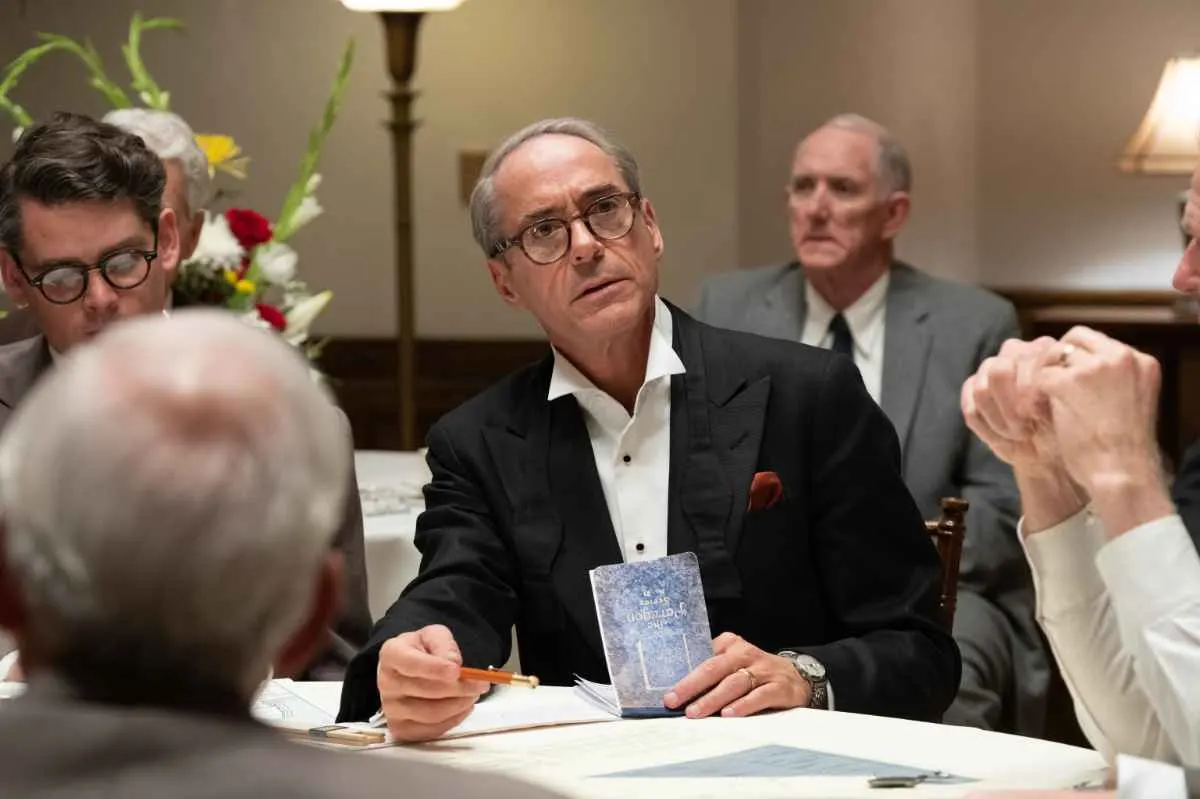
Robert Downey Jr.’s Lewis Strauss is the best role he’s had, ever. Those students of history will know what impact Strauss had on Oppenheimer in the post-war years, but Nolan cleverly breaks apart that narrative for the audience to piece together. Downey says so much with just a gesture or a look, but he’s lightyears away from Tony Stark here. He puts his clever aphorisms and twitches to bed, and the result is a rich portrayal of a deeply complicated man, who plays his cards close and keeps his vendettas closer.
Across the board, all the performances are amazing. I especially loved Damon’s Groves, who comes across as a gruff soldier cliché, but hides deep wells of knowledge and understanding underneath. Groves knows the kind of man Oppenheimer is. He also knows that in chemistry, certain compounds can generate a lot of energy, and a good chemist knows when to allow the reaction to happen and when that reaction is too volatile. This is one of the best roles of Matt Damon’s career.
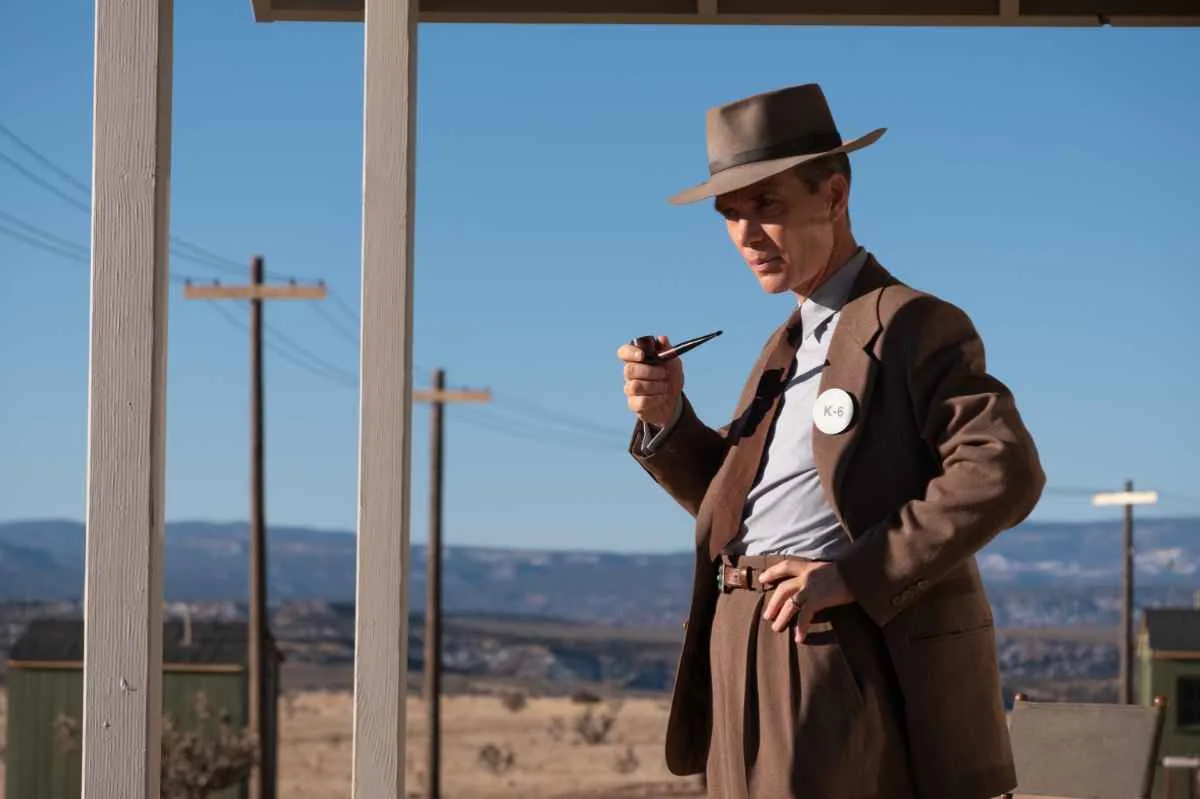
The centerpiece of the film is that atomic test in Los Alamos, and Nolan knows how to build the film up to a crescendo. But he also knows that the machinery to get us there is itself a thematic point of the film. Oppenheimer is multi-layered and dense, and not a casual sit. On one level, it is an examination of history and how humanity has gotten to where we are today.
On another level, it’s a filmmaker trying to understand his craft, and come to grips with how that craft has impacted his life, both positively and negatively, and how his craft has impacted cinema. I suspect Nolan does not rest comfortably with any of it, and it’s in that conflict that real art can be made, even though it costs so much.

I haven’t mentioned the tremendous score, the astounding cinematography, the editing, the script, and even most of the other performances. I must see Oppenheimer again, to pick it apart, to examine each facet, to try to understand it, to hold such a massive achievement in my mind.
Much like Oppenheimer trying to comprehend the building blocks of the universe, I predict that I’m going to spend the rest of my life thinking about this movie to some degree. I probably throw around the word “masterpiece” too much. Sometimes the words fail me. Trying to quantify art, especially a piece of art as daunting as Oppenheimer, can be difficult.

You don’t want to swerve into hyperbole; you want your words to be trusted, and you want your readers to understand how a film, or any piece of art, affected you. Sometimes, that piece of art is just too big.
Oppenheimer is like that. It sounds reductive to call it Nolan’s masterpiece, but I feel like I’m correct in saying that Oppenheimer is the film that Christopher Nolan has been working towards his entire career. It is a staggering achievement in cinema, and easily the best film so far this year.
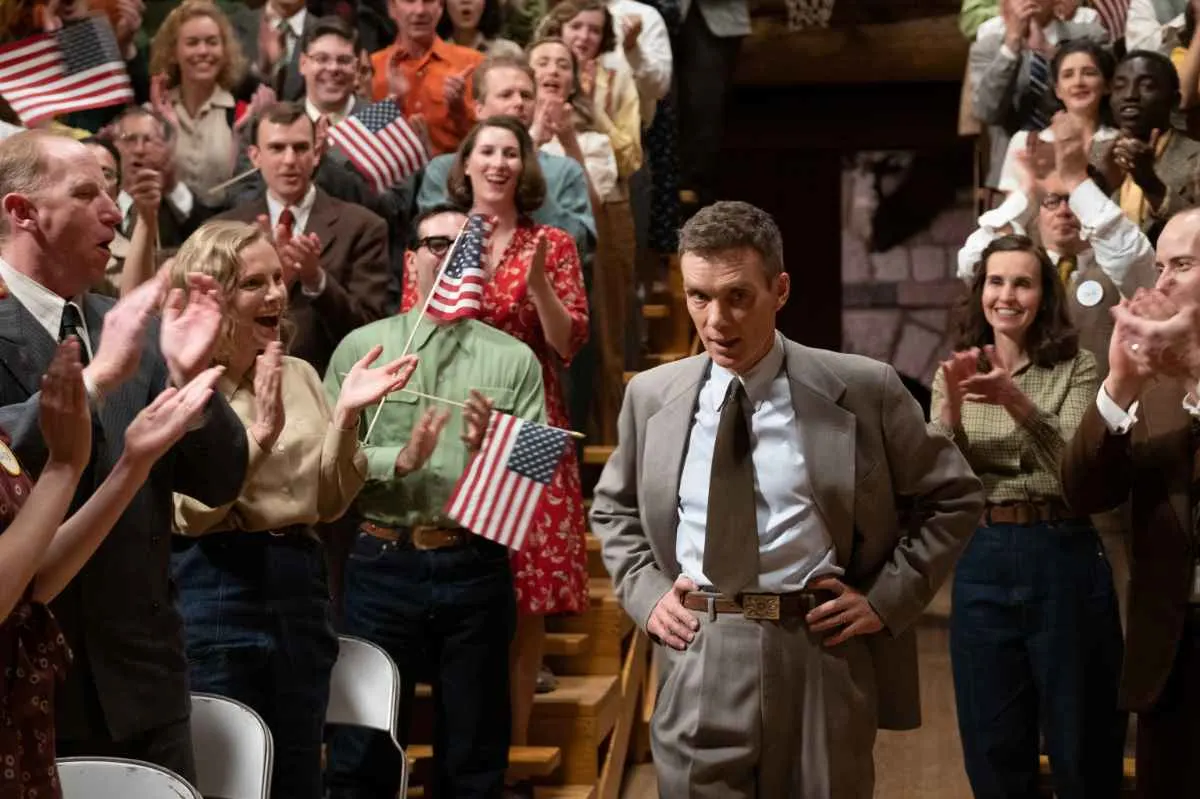
OPPENHEIMER REVIEW SCORE: 10 OUT OF 10
Universal Pictures will release Oppenheimer in theaters on Friday, July 21. The film is rated R for some sexuality, nudity and language.
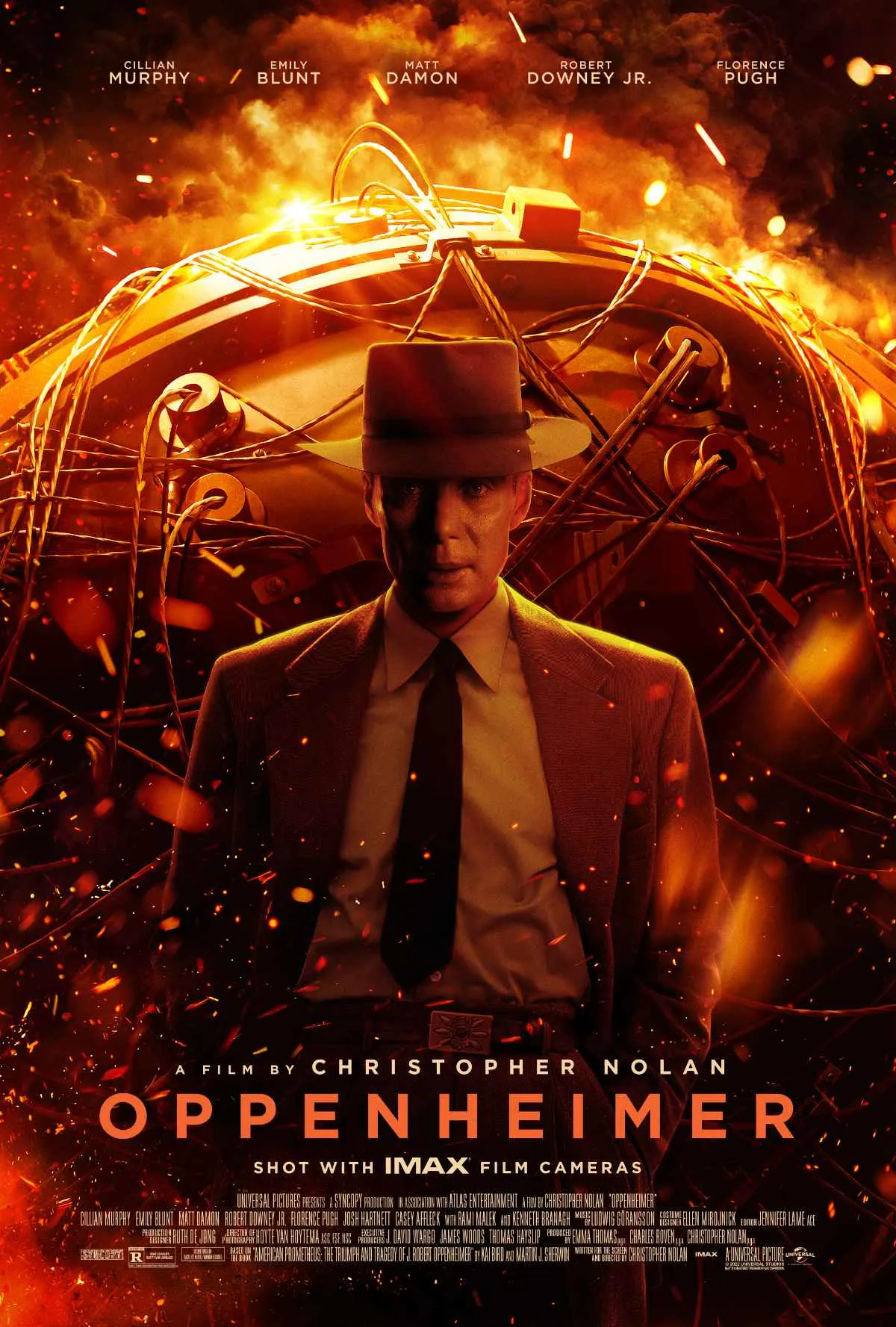

Alan Cerny has been writing about film for more than 20 years for such sites as Ain’t It Cool News, CHUD, Birth Movies Death, and ComingSoon. He has been a member of the Houston Film Critics Society since 2011. STAR WARS biased. Steven Spielberg once called Alan a “very good writer,” and Alan has the signed letter to prove it, so it must be true.